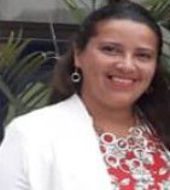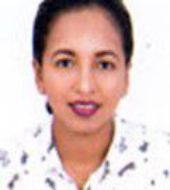Pedagogical Training in Digital Tools and their Impact on the Educational Quality of Tax Educational Institutions at pandemic times
Main Article Content
Abstract
Pedagogical Training in digital tools in times of pandemic must be a constant and permanent activity, which commits both the teacher and the student, in their role of improving and making the teaching and learning process effective, since it seeks to reinforce and update the knowledge acquired in their professional career, in order to build new teaching strategies in the classroom, now virtual. The lack of training within the educational processes, mainly in the didactic - pedagogical area, causes demotivation in students, little desire to learn, due to the routine of the classes, therefore it is relevant that all the teachers who make up the national educational system fulfill the responsibility of addressing new issues in the educational framework, to improve their skills, framed in enabling the so-called educational quality. The objective of the analysis is to propose a virtual classroom process that allows strengthening previous knowledge through shared learning and use of digital tools and that manages to generate meaningful knowledge and competitive skills. The applied methodology is of a theoretical nature, approximately 30 articles published from 2012 to the present date were analyzed, both empirical and theoretical, and the literary review is focused on topics such as: pedagogical training, digital tools, educational quality, teacher training and learning, in a database of google academics, Elsevier magazine, Redalyc, Scielo, Dialnet and others. The findings found give relevance to pedagogical training in innovative methodologies and digital tools such as You Tube, Educreations, Quizziz, Kahoot, Google Meet; in addition to whiteboards and virtual murals, such as Padlet, Visual Thinking, etc., since these resources are an essential tool in the processes of improvement of teaching and learning methods and strategies, and that have a great impact on educational quality.
Downloads
Article Details

This work is licensed under a Creative Commons Attribution-NonCommercial-ShareAlike 4.0 International License.
1. Derechos de autor
Las obras que se publican en 593 Digital Publisher CEIT están sujetas a los siguientes términos:
1.1. 593 Digital Publisher CEIT, conserva los derechos patrimoniales (copyright) de las obras publicadas, favorece y permite la reutilización de las mismas bajo la licencia Licencia Creative Commons 4.0 de Reconocimiento-NoComercial-CompartirIgual 4.0, por lo cual se pueden copiar, usar, difundir, transmitir y exponer públicamente, siempre que:
1.1.a. Se cite la autoría y fuente original de su publicación (revista, editorial, URL).
1.1.b. No se usen para fines comerciales u onerosos.
1.1.c. Se mencione la existencia y especificaciones de esta licencia de uso.
References
Barbón, O., Añorga, J., & López, C. (2014). Formación permanente, superación profesional y profesionalización. Revista Cubana deReumatología, 63. Obtenido de http://scielo.sld.cu/pdf/rcur/v16n1/rcur12114.pdf
Barreto P., D. (Agosto de 2020). Abandono escolar en la pandemia. Obtenido de Diario El Comercio: https://www.elcomercio.com/blogs/derechos-y-humanos/abandono-escolar-pandemia-pensi
Bianchetti, A. (2017). Calidad Educativa: Concepciones y debate. Revista Electrónica de Investigación DEducativa(19).
Cacheiro, M. L., Sánchez Romero, C., & González Lorenzo, J. (2016). Recursos Tecnológicos en el Contexto Educativo. En 2016, Recursos Tecnológicos en el Contexto Educativo. Madrid: Uned.es/Universidad Nacional de Educación a Distancia.
Carrillo, S., Forgyoni, J., Rivera, D., Bonilla, N., Montanchez, M., & Alarcón , M. (2018). Prácticas Pedagógicas frente a la Educación Inclusiva desde la perspectiva del Docente. Revista Espacio, Vol. 39 (Nº 17) . Pág. 15.
Chacón, L. (2019). Calidad educativa: una mirada a la escuela y al maestro en Colombia. Educación y Ciudad, 44.
Cifuentes, J., Poveda, D., & Rodriguez, D. (2019). Education Quality: Reflections on its Evaluation Through Standardized Testing. Saber, Ciencia y Libertad, 14(2), 247.
Constitución de la República del Ecuador. (2008). Elementos Constitutivos del Estado Art 346 - 347 Inciso 1 ( Registro Oficial 449 de 20-oct-2008 ed.). Quito: Lexis.
Ecured. (2021). Ecured. Obtenido de https://www.ecured.cu/Capacitaci%C3%B3n_pedag%C3%B3gica
Educar Plus. (10 de abril de 2019). https://educarplus.com/2019/04/conoce-la-nueva-iniciativa-sobre-desarrollo-sostenible-en-educacion-2019.html. Obtenido de Desarrollo Sostenible en Educación: https://educarplus.com
Fernández, N., & Pérez, C. (2016). La Educación Superior Latinoaméricana en inicio del siglo XXI. Uned La Educación en América Latina, 131-133.
García Cabrero, B., Loredo Enríquez, J., & Carranza Peña, G. (2008). Análisis de la práctica educativa de los docentes: pensamiento, interacción y reflexión. Revista electrónica de investigación educativa, vol.10.
Gestión 30. (14 de Mayo de 2020). Gestión: Diario de Economía y Negocios. Obtenido de Todo sobre Zoom: qué es, cómo funciona, cómo descargarlo y sus trucos para videollamadas: https://gestion.pe/tecnologia/
Gómez, S. (2018). Análisis documental del proceso de formación docente acorde con la sociedad del conocimiento (Vol. 39). Guayaquil: Revista Espacios.
Guisasolaj, Jenaro, Pintos, M. E., & Santos, T. (2015). Formación Continua del Profesorado, Investigación Educativa e Innovación en la enseñanza de las ciencias. Revista Interuniversitaria de Formación del Profesorado, pp. 207-222.
Martínez Medina, S. (2017). La Formación Docente para el siglo XXI. Revista Panamericana de Pedagógia, Pág 10.
Ministerio de Educación. (2014). Marco del Buen Desempeño Docente. Lima Perú: Corporación Gráfica Navarrete Carretera Central 759 km. 2 Sta. Anita - Lima 43.
Ministerio de Educación Ecuador. (2020). Plataforma mecapacito MINEDUC. Obtenido de https://mecapacito.educacion.gob.ec/capacitacion2020
Ministerio de Educación. (s.f.). www.educacion.gob.ec.
Ministerio de Trabajo. (2018). Plan Decenal de Capacitación. Quito.
Ministerio de Trabajo Ecuador. (2018). Plan Nacional de Capacitación.
Moreano, A. (2015). Enfoques en la Formaxción Docente. Ra Ximbai, 11(4), 511.
Nares, M., Velasco, I., Gutiérrez, S., & Martínez, L. (2017). Formación y Capacitación Docente, su impacto en la calidad educativa de la Unidad Académica de la Universidad Autónoma de Nayarit. Educate con Ciencia, 13(14), 92-110.
Osorio García, M. d., Navarro Zavalet, J. A., & Mejía Serafin, L. (2008). Impacto de la práctica docente sobre la calidad de la enseñanza en el nivel medio superior. Espacios Públicos, 11(21), Pág. 352 -369.
Osorio, J., & Piña, M. (2013). Investigación educativa ¿para qué? Perfiles Educativos, 35 Issue 139, Pages 3-6.
Perines, H. (2018). ¿Por qué la investigación educativa no impacta en la práctica docente? REV - Estudios sobre Educación , 9 - 27.
Perines, H., & Campaña , C. (2019). La Alfabetización de los futuros docentes en Investigación Educativa: Una reflexión teórica desde el contexto de Chile. Revista Caribeña de Investigación Educativa, 3(1), 7-18.
Ramírez, R. C. ( 2013 ). Devaluación de la función docente . Ponencia presentada en el Primer Congreso Internacional de Transformación Educativa. México.
Ruiz, L., Torres, G., & García, D. (2017). Desafíos de la educación superior. Consideraciones sobre el Ecuador. Innova Research Journal, 14.
Salazar-Gómez, E., & Tobón, S. (2018). Análisis documental del proceso de formación docente acorde a la sociedad del conocimiento. Revista Espacios, Pa´g. 17 Vol 39.
Schweighöfer, B. (2019). Rol, contribución y más potencial. En Youth and Adult Education in the Agenda 2030 and the Sustainable. DVV International.
Universia. (2019). Universia.net. Obtenido de 8 herramientas digitales que transforman la educación: https://www.universia.net/ar/actualidad/habilidades/8-herramientas-digitales-que-transforman-educacion-1165324.html
Vincenzi, A. D. (2012). La Formación Académica del Profesor Universitario. Un Desafío para la reflexión y revisión de la Práctica Docente en el Nivel Superior. Ediciones Universidad de Salamanca, n.º 18; 111-122].
Williams, S. (2015). La calidad de la educación es insuficiente para lograr la Educación para Todos en 2015. Unescopress.




